Letters from Bulgaria: Overview of Rev. Ivan Voronaev’s Correspondence
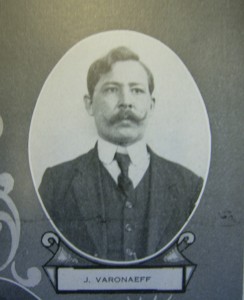 The following article comprises the available documents on the life and ministry of Rev. Ivan Voronaev drafted as a chronological outline for a longer paper, which will be presented at the 2010 SPS meeting in Minneapolis. The materials were gathered from several archives across the United States among which were three major ones:
The following article comprises the available documents on the life and ministry of Rev. Ivan Voronaev drafted as a chronological outline for a longer paper, which will be presented at the 2010 SPS meeting in Minneapolis. The materials were gathered from several archives across the United States among which were three major ones:
(1) The Flower Pentecostal Heritage Center where Voronaev’s ministerial records and his reports to Pentecostal periodicals are kept;
(2) The Southern Baptist Historical Library & Archives, where records of Voronaev’s publication are preserved;
(3) The Graduate Theological Union of Berkeley, which holds in archive the California Baptist records, where much could be found about Vornoaev’s early minister in the United States (California, Oregon and Washington State) as an ordained Baptist minister.
1886: Ivan Ephremovitch Voronaev was born in Russia under the name of Nikita Petrovitch Tcherkesov.
1908: Having married Ekaterina Bahskirova, Tcherkesov received Christ as his personal savior, during a visit to a Baptist church service, while serving in the Tzar’s army. Shortly thereafter, he was court-martialed for his refusal to bеаr arms. In order to escape, he was provided with the passport of a Christian brother from the Tashkent Baptist Church, whose identity he took for the remaining of his life under the name of Ivan Ephremovitch Voronaev.
1910: Together with his family Voronaev crossed the Chinese border and remained for a short time in the city of Carbin, Manchuria, where he preached in the Baptist church and work in the bank of one of the church members by the name of Shubin.
August 25, 1912: The Voronaev family, along with their two children, after receiving visas for the United States through the consulate in the Japanese port city of Kobe, arrived in San Francisco. Voronaev began working with the First Russian Baptist Church in town, which was founded several years earlier on 928 Atkinson Street by S. K. Kunakov. Voronaev also worked as a typesetter, travelled and preached to the Russian communities in Los Angeles and Seattle, where he established a Baptist church and a mission. Meanwhile, he began publishing the “Truth and Love” magazine for the Russian speaking emigrants.
November, 1912: Voronaev is mentioned for a first time in the annual report of the North California Baptist Convention as a newly accepted minister.
February, 1913: A revival began among the Russian Baptists in Los Angeles and they requested the sending of Voronaev to minister among them.
September 18, 1913: The San Francisco Bay Baptist Association held its meeting at the Russian Baptist Church in town. Voronaev was represented as a pastor, who led the benediction. North California Baptist Convention ordained him as pastor in San Francisco. While living in town, Voronaev attended Berkeley Baptist Divinity School for three years, although school archives do not have his student records. Later on, when ministering in Odessa, Voronaev receives Assemblies of God ordination thanks to his seminary preparation and ministry as a Baptist pastor. In a handwritten request to Assemblies of God headquarters, he points out his date of ordination as October 17, 1913, while the ministerial certificate which he receives as evangelist and pastor in Bulgaria is dated March 10, 1920.
1914: S. Gromov assumes the pastoral position at the Russian Baptist Church of San Francisco, after Voronaev had left for unknown reasons. According to Voronaev, this is the time when he first hears about the teaching of Pentecost while ministering in Los Angeles.
November, 1915: Voronaev arrived in Seattle to begin work among the Russian emigrants and renews the publication of the “Truth and Love” periodical.
October 1916-1917: Voronaev was mentioned in the annual reports of the Baptist Convention of West Washington State as Russian missionary in Seattle.
October 1918: Voronaev was mentioned in the annual reports of the Baptist Convention West of Washington State again, but now as a pastor. The Russian group met regularly at the church pastored by Earners Williams who will later serve as Assemblies of God superintendent in the period 1929-1949. It was Williams who introduced Voronaev to the Pentecostal doctrine.
1917: A number of members of the Russian Diaspora in California and of the Russian Baptist community returned to Russia after the Bolshevik Revolution. The Baptist Church of San Francisco went through a period of church split in 1915-1916, noted in the record of the Baptist Association, as follows: “During the past year this church has passed through dark days on account of the interference of a man of the Pentecostal faith …”
November, 1917: Voronaev organized a Baptist church on Henry Street in New York. His family is befriended by their neighbors by the name of Siritz who are Pentecostal Christians.
1918-1919: The New York Baptist Association reports Voronaev as a pastor of the New York Baptist Church organized in 1916. The church has 10 members in 1917 and 18 in 1918. The 1920 report states that the church has remained without a pastor in the middle of 1919.
June, 1919: Voronaev receives the baptism of Pentecost after his daughter began attending Glad Tidings Tabernacle (Hall).
July 1, 1919: Along with some 20 believers, Voronaev left the Baptist denomination and founded the first Russian Pentecostal Assembly of New York, which held meetings at the building of the 6th Street Presbyterian Church.
Fall of 1919: In a cottage prayer meeting at the home of Koltovich, through the wife Ana, a prophecy was given: “Voronaev, Voronaev, go to Russia!” Voronaev ignored the word until several days later he heard them again while praying alone and obeyed the Heavenly call.
December 13, 1919: Voroneav sent the Pentecostal Evangel a letter which was published under the title “Pray for Russia.”
December 19, 1919: Voroneav contacted the Missionary Department of the Assemblies of God with a letter to H. E. Bell to inquire about Pentecostal believers and missionaries in Russia.
January 1, 1920: Upon Assemblies of God recommendation received in response to his last letter, Voronaev contacted J. Roswell Flower with a request for sponsoring a mission trip to Russia. In return, the “Evangelization of Russia” fund was open. In the letter, Voronaev changed the name of his church from “Russian Christian Apostolic Mission of New York” to “First Russian Pentecostal Assembly of New York.”
March 10, 1920: Assemblies of God issued Voronaev a certificate as a “pastor and evangelist in Bulgaria” valid till September 1, 1921.
June 22, 1920: Voronaev notifies the Assemblies of God about his plans to set sail for Russia with his family on July 13, 1920. The Missionary Department marked the letter with the words: “He plans to return to Russia.”
July 13, 1920: The Voronaev, Koltovitch and Zaplishny’s families set sail on the “Madonna” steamboat from New York to Constantinople. Along with them traveled a group of Kavkaz believers among which was the Bulgarian Boris Klibok.
August 10, 1920: After arriving to Constantinople, they had to wait for visas to enter Russia. Voronaev immediately began meeting with the Russian community in town recognizing the lack of Russian Bibles and Pentecostal churches.
August 15, 1920: „ ….with the help of God opened Russian mission here [Constantinople], and God our work blessed;” Voronaev wrote.
August 30, 1920: „…. we had first baptism with water in river. I baptized one lady wife of a Russian office. Glory to Jesus!”
September 2, 1920: Voronaev sent the Assemblies of God a report about his work in Turkey, which is marked by the receiver with “Works among 100,000 Russian refugees in Constantinople.
September 1920: The annual report of the San Francisco Bay Baptist Association recorded the reuniting of the Baptist church split in 1917.
November, 1920: After waiting for three months in Constantinople, Voronaev arrive in the Bulgarian port city of Bourgas along with the Bulgarian Boris Klibok.
March 5, 1921: The Pentecostal Evangel published Voronaev’s report from Bulgaria where he has been holding Russian-Bulgarian revival services in various churches in the cities of Sliven, Yambol, Varna and Sofia. Seven had received the baptism with the Holy Spirit.
April 16, 1921: The Pentecostal Evangel published Voronaev’s second report from Bulgaria about services in Sliven, Bourgas, Plovdiv and the Baptist Church in Stara Zagora where the daughter of the Baptist pastor from Kazanlak received the baptism with the Holy Spirit.
May 14, 1921: Services in the Congregational Church in Plovdiv and baptismal service in the Martiza River.
June 11, 1921: „In Bourgas, Bulgaria the Lord baptized with the Holy Spirit about fourteen souls. We have about twenty candidates for baptism with water, and about thousand Bulgarians and Russian were there and were much interested.”
July, 1921: The Latter Rain Evangel published an article under the title “Pentecost in Bulgaria” in which Voronaev wrote about new Pentecostal believers in seven Bulgarian cities, his relocation in Varna to work with the local Methodist church and his plan to move to Odessa. The Pentecostal Evangel from the same month wrote, “God called Brother J.W. Voronaeff, who had charge of a Russian Pentecostal Assembly in New York City, to Russia.”
August 6, 1921: The Pentecostal Evangel reported Voronaev to be working “among Russian refuges in Varna at the Black Sea.” The same issue records Voronaev’s apparent intent to move to Odessa: “Brother J.E. Voronaeff writes that the Lord could use American missionaries in Bulgaria. At the present time He particularly needs two Americans, a man and his wife. Anyone who feels a burden for carrying the Gospel to the Bulgarian and Russian people can address Brother Voronaeff through this office.”
August 21, 1921: The Voronaev and Koltovitch families received the long-awaited visas for Russia and moved to Odessa.
Mission Bulgaria 2009: Ministering at First Assemblies of God in Sofia
From ministering in the Ghetto, we traveled to the heart of the capital to preach at the First Assemblies of God in Sofia located in the downtown area of Sofia. This is the oldest Pentecostal church in town, which was established in the 1930s as a direct result of the Pentecostal revival which has swept through Bulgaria. Today, the church is pastured by Rev. Victor Virchev, who also currently serves as the President of the Bulgarian Pentecostal Union. In recent years, the old building was remodeled to create a modern ministry center which serves as headquarters of the Bulgarian Pentecostal Union in its partnership with the Assemblies of God and has become an important religious symbol of Sofia in its downtown location. We ministered in the main service on Sunday morning and were able to present Pastor Virchev with a copy of the revised Constantinople Bible, which our ministry published in the beginning of 2009.
Mission Bulgaria 2009: Ministering at the Gipsy Ghetto of Phakulteta
The Gipsy ghetto of Phakulteta is located in the northeast side of the capital Sofia with a population of some 120,000 people, which makes it larger than the average Bulgarian town. It comprises a substantial part of the population of Sofia, which now numbers over two million people. In recent years, Phakulteta has been a place of ethnic tensions produced in the middle of extreme poverty and the war of local crime clans which rule the area.
There, we have focused our ministry efforts in the past several years through regular preaching, prayer meetings, and leadership seminars for pastors, youth rallies and music fests. As many have noticed in the recent months while we have ministered at the Life Church of God in the Sofia gipsy ghetto, the extremeness of the context in which we minister there and the deep needs of the people, often draw the attention of God with powerful anointing and supernatural miracles. However, this last service was so powerful in the Spirit that it put all present on their knees for prayer in the alter service which followed the message. We were able to broadcast live the event and we are grateful that video recorded from the service can be now watched by many showing the heavy presence of the Holy Spirit, which no words can truly describe. We are scheduled to return to Philpovtsy soon for a series of revival services, which will reunite the local churches in a regional seminar on Last Day Prophecy.
TrackBack: http://www.cogwm.org/index.php?option=com_content&task=view&id=2436&Itemid=60
Mission Bulgaria 2009: Ministering at Samokov Church of God
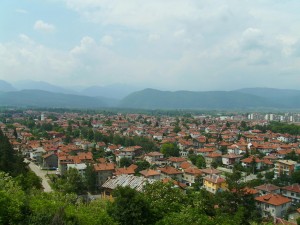
It is always a delight to return to the city of Samokov near Sofia and minister there. Recent developments have dictated that two Church of God congregation in near-by locations minister to over 3,000 Spirit filled members from the gipsy ethnos in the area. The growth is so tremendous, that one of the congregations have baptized in water 207 people last month alone. The other congregation is led by the national overseer of the Bulgarian Church of God, Pastor Alexander Todorov. We ministered in Samokov on the subject: 20 Signs of the Last Days and were also able to schedule other ministry appointments with the churches in the area. The regional leadership seminar was also discussed for a
time convenient for all pastors in the region, as it has been in the plans for sometime now due to our ongoing ministry in other areas of the country. It is our heartily desire that this ministry event combined with the prayers of the saints will result in the union of the Spirit-filled believers in the city of Samokov producing a mighty wave of revival in the lives of the people which will change the spiritual landscape of this area forever.
Mission Bulgaria 2009: Ministering Along the Black Sea Coast
 Our recent ministry appointments have taken us beyond the borders of Bulgaria and we have thoroughly enjoyed and celebrated this event. However, from the moment we landed in Bulgaria our phones have been ringing with back to back invitations for ministry. Some unfortunately overlapped and we had to respectfully decline, but we are thankful for the many doors which are opening. We continue to ask for your prayers of wisdom and support as we need much strength to take on what has been set before us.
Our recent ministry appointments have taken us beyond the borders of Bulgaria and we have thoroughly enjoyed and celebrated this event. However, from the moment we landed in Bulgaria our phones have been ringing with back to back invitations for ministry. Some unfortunately overlapped and we had to respectfully decline, but we are thankful for the many doors which are opening. We continue to ask for your prayers of wisdom and support as we need much strength to take on what has been set before us.
After successfully arriving at our base location, Yambol nearly 48 hours after leaving the states due to missing our connecting flight in Germany, we headed for ministry at the Black Sea coast. In the town of Aheloi, where we have anticipated going for sometime now, we were able to minister and fellowship with the local church over the weekend.
Among the topics we discussed with the congregation were: (1) the new Constantinople Bible publication and its upcoming jubilee 2011 edition, (2) the new Bulgarian literal translation of the New Testament, which we have now completed for publication in 2010 and (3) the role of media and live broadcast in the life of the traditional Bulgarian Pentecostal church. Of course, we shared from the word as well, a message from Philemon on Paul being a Prisoner of Christ over which the Secular Empire has no authority.
TrackBack: http://www.cogwm.org/index.php?option=com_content&task=view&id=2440&Itemid=60
Bulgarian Elections 2009
Boyko Borisov, Sofia mayor, leader of the winner in the general elections GERB and already self-proclaimed prime minister of Bulgaria, embarked on his voyage for the higher office with the promise that Bulgaria is a different country and the guilty will be brought to justice.
“I don’t have the right not to lead Bulgaria’s next government,” Boyko Borisov said at his first press conference after the vote, warning, however that no miracles are to be expected in the next half a year.
“No miracles should be expected to occur in the next five or six months. And we haven’t promised any,” Borisov told reporters at the press center of the National Palace of Culture in Sofia.
“This is the first time that Bulgarians vote for someone whom they know what he can and cannot do. Even if you are in love, you can fall out of love for ten years,” Borisov said, referring to his time in office as Interior Ministry Chief Secretary and Sofia mayor.
Asked about his promise to enter the office of the prime minister only in case of emergency, Borisov said:
“The total collapse of the three-way ruling coalition made me step into the prime minister office.”
Borisov vowed to launch investigations into all shady deals of the government and the land swaps in particular, backing his words with probes that he has initiated in his capacity of mayor of the capital Sofia.
“If we mislead the voters, we will get where Simeon Saxe-Coburg is now,” Borisov said, referring to the sorry results of the former king and prime minister, who didn’t make it to the next parliament.
Asked about the date when he will leave the office of the mayor of capital, he laconically said:
“I will inform you of that when the time comes.”
Borisov was also cautious about the coalition possibiolities he is willing to enter into, saying that after the final results come out, he will invite the parties in the center-right part of the political spectrum for negotiations.
“We want to be a government of all people,” Borisov said.
“I want to thank those, who voted for us and assure those who did not that we will try to lead politics good for all Bulgarian people,” he added, referring to the ethnic Turks in particular, who in his words, “should not listen to those, who play on their fears.”
BULGARIA VOTES in the EU Parliament Elections
European Parliament Elections leave Bulgarian Evangelical Churches with no venue of political support.
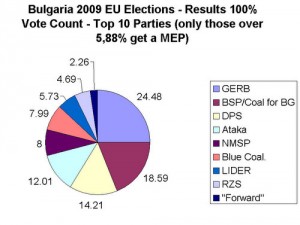
As an EU member, Bulgaria voted in the EU Parliament Elections on June 6, 2009. After the 100% count, it was announced that GERB (new centrist party led by Sofia’s mayor Boyko Borisov) has won 24.48% of the votes with 627,693 votes. The Socialist Coalition for Bulgaria totaled 476,618 votes or 18.59%, the Turkish Movement for Rights and Freedoms (DPS) received 364,254 votes or 14,21%, the Nationalist Ataka got 307,985 or 12,01%, the National Movement for Stability and Progress (NMSP) of former Tsar and former PM, Simeon Saxe-Coburg, secured 205,145 votes or 8%, and the democratic Blue Coalition got 204,784 or 7.99%. Read more
Bulgaria Mourns
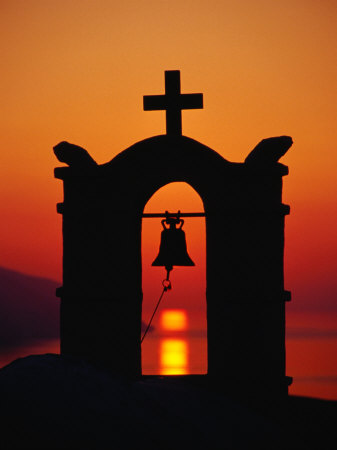 Bulgaria mourns after a fatal crash near the town Yambol killed 17 people and injured dozens more on Thursday.
Bulgaria mourns after a fatal crash near the town Yambol killed 17 people and injured dozens more on Thursday.
May 28th is celebrated in the Eastern Orthodox tradition as the Feast of the Ascension of Jesus Christ. On this day, it is tradition to take a pilgrimage to your local monastery. A bus, after taking people to the Yambol monastery at the Bakadjik Mountain, lost control due to break failure and ran over some 30 people on its way downhill. Eleven women, four men and one boy were propounded dead at the scene of the crash. One more died in the hospital and a dozen others are in critical condition. Yambol is also the city which we make our base location while we minister in Bulgaria. Read more
PRAYER for the POMAKS of BULGARIA
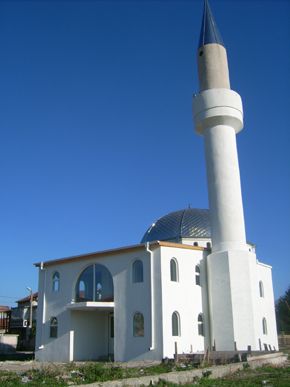 This urgent report is based on the resent proposal for changes within the legal status of the Muslim mosques on the territory of Bulgaria. The controversial changes may allow even Muslim temples which are protected as buildings of historical value to be reactivated and used again for service. This will inevitably affect the Muslim community on the Balkan Peninsula, as well as the Bulgarian Pomaks – a Bulgarian-speaking Muslim population group native to southern Bulgaria. The building of Muslim mosques on the territory of Bulgaria has been revitalized in the past decade, especially in the villages in Southern Bulgaria where Pomaks live.
This urgent report is based on the resent proposal for changes within the legal status of the Muslim mosques on the territory of Bulgaria. The controversial changes may allow even Muslim temples which are protected as buildings of historical value to be reactivated and used again for service. This will inevitably affect the Muslim community on the Balkan Peninsula, as well as the Bulgarian Pomaks – a Bulgarian-speaking Muslim population group native to southern Bulgaria. The building of Muslim mosques on the territory of Bulgaria has been revitalized in the past decade, especially in the villages in Southern Bulgaria where Pomaks live.
10 Years of Military Ministry in Bulgaria
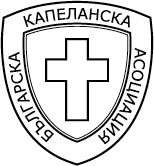 Military Ministry in Bulgaria is celebrating 10 years. The special events will be held in the Black Sea town of Varna, Bulgaria. Chaplains from around the country, as well as international colleagues and friends, are invited for a time of reunion and inspiration. Special speakers of the event are Paul Pettyjohn and Chaplain Bernie Windmiller from the International Association of Evangelical Chaplains.
Military Ministry in Bulgaria is celebrating 10 years. The special events will be held in the Black Sea town of Varna, Bulgaria. Chaplains from around the country, as well as international colleagues and friends, are invited for a time of reunion and inspiration. Special speakers of the event are Paul Pettyjohn and Chaplain Bernie Windmiller from the International Association of Evangelical Chaplains.
After serving the military in Bulgaria for a decade, the ministry is strategizing the legalization of chaplaincy and pastoral care in the Bulgarian professional army and police. Today, this difficult task seems closer than ever before, as ministers, pastors and caregivers are excited about the opening of such doors and the new opportunities which it will present for Bulgaria.







